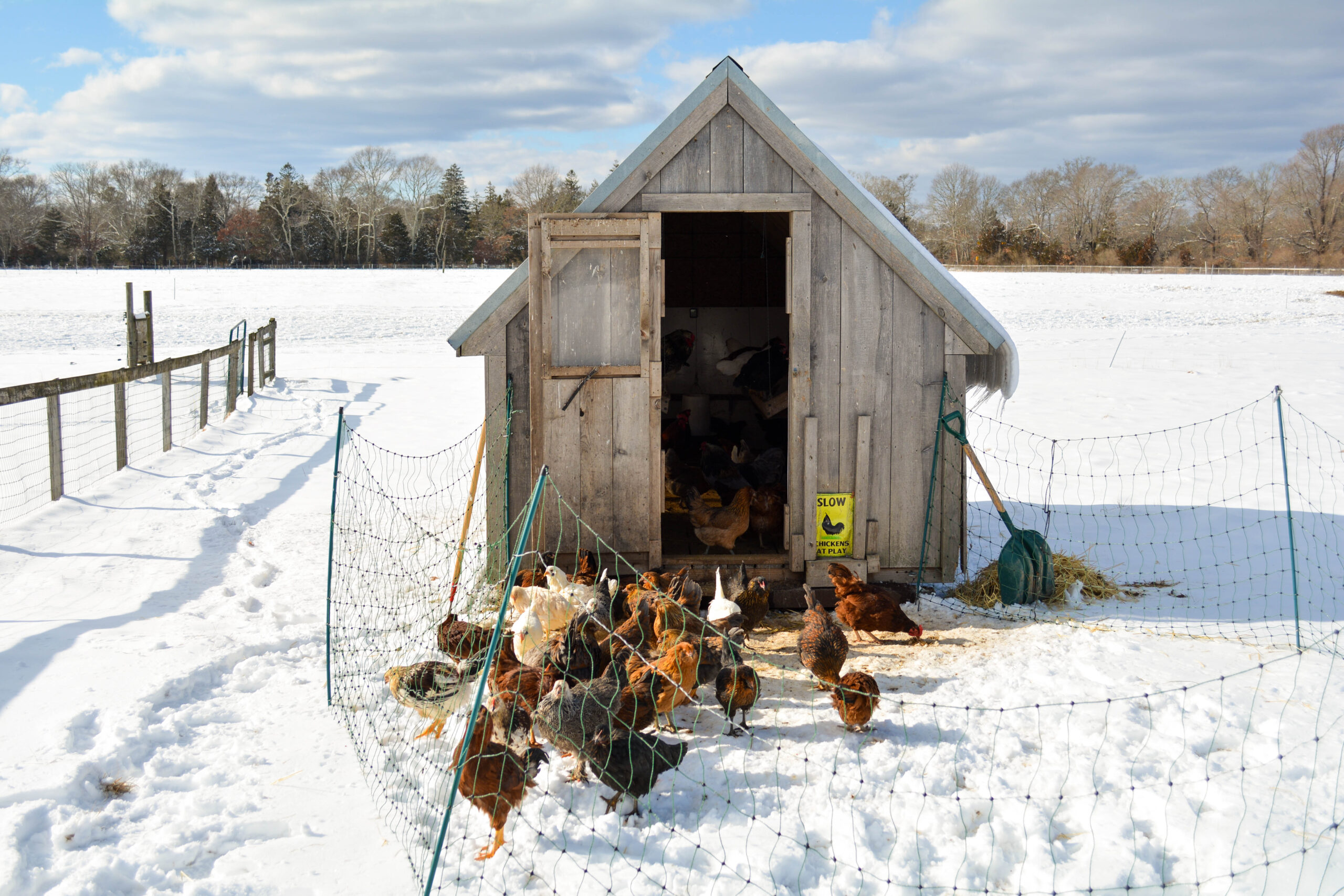An outbreak of the yearly bird flu, or avian influenza, has quickly spread nation-wide, skyrocketing egg prices and putting the birds of local farms at risk.
Peckham Farm sits at the bottom of the University of Rhode Island’s campus and is home to 65 outdoor chickens and 40 inside birds. With the migratory season in progress and a recently euthanized noncommercial flock of 40 birds in Washington County due to the virus, Peckham Farm Manager Coleman Replogle is taking precautionary measures to ensure the safety of both students and birds.
The biggest threat to the Peckham poultry is the spread of the disease through waterfowl and other birds who can carry it into the outside coops, according to Replogle. If a chicken at Peckham tests positive, the farm will be sent into a 120 day quarantine and forced to “get rid of” all of their birds.
This threat of quarantine has made Replogle consider selling the 65 outside chickens on Peckham until the migratory season concludes, and they can possibly rebuild from the inside coop in June.
“We are a teaching farm, and if during the semester we contract that disease outside, even though the inside birds were not in contact, we have to get rid of them, which means whatever is going on with that class [working with the inside birds] is been disrupted,” Replogle said. “So, from my standpoint, it’s safer to remove the issue until we’re kind of clear of it.”
Students are required to use footbaths upon entering and leaving the inside coops in order to help prevent the spread reaching the indoor birds, according to Replogle. Additionally, they are required to wear gloves when collecting eggs, and the farm has a machine to clean them.
While not currently able to sell the eggs their chickens produce, Peckham donates their poultry’s products to Rhody Outpost, as well as students and faculty working on the farm, according to Replogle.
During outbreaks such as these, food services can become reliant on even local farms for supply as egg prices soar.
Over the past year, egg prices have over tripled, shooting from $35 for 15 dozen to $115 for 15 dozen as of the beginning of February, according to director of URI Dining Services Pierre St-Germain. This year alone has seen a roughly $30 increase per 15 dozen so far.
To combat these prices, dining services is trying to source from multiple companies and local farms to combine for the best price point, as well as from their key distributor Performance Food Group, St-Germain said.
With 6,000 students living on campus and 17,000 attending URI, dining services puts out roughly two million meals per year, according to St-Germain. In order to keep eggs on the menu, they must maintain supply to feed the masses despite the upshoot in prices.
“We’re just seeing an increase in price and that’s offsetting any problems with supply because as the price goes up, you’re gonna watch more companies lower their purchasing amounts,” St-Germain said. “We don’t have that option.”
URI dining uses roughly 400 dozen whole eggs every two weeks across campus, according to St-Germain. Due to the cost of eggs, St-Germain said dining services may need to increase meal prices in retail food places on campus in the future, similar to the price changes seen in grocery stores.
Despite the recent surges in bird flu cases causing egg prices to jump, avian influenza is a yearly occurrence spreading primarily through migration, similar to the human flu, according to Replogle.
The rise of the bird flu over the past two years has brought to light the possibility of human transmission. The first recorded severe human case in the United States was confirmed two months ago on Dec. 13, 2024 in Louisiana, according to the U.S. Centers for Disease Control and Prevention.
To read more about state procedures and information surrounding avian influenza, visit the Rhode Island Department of Environmental Management’s website.





